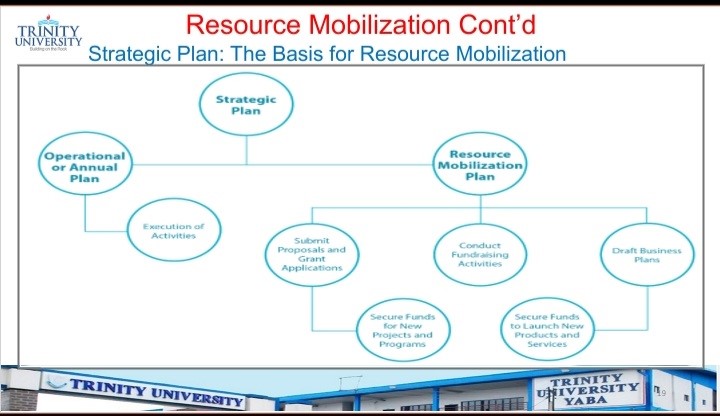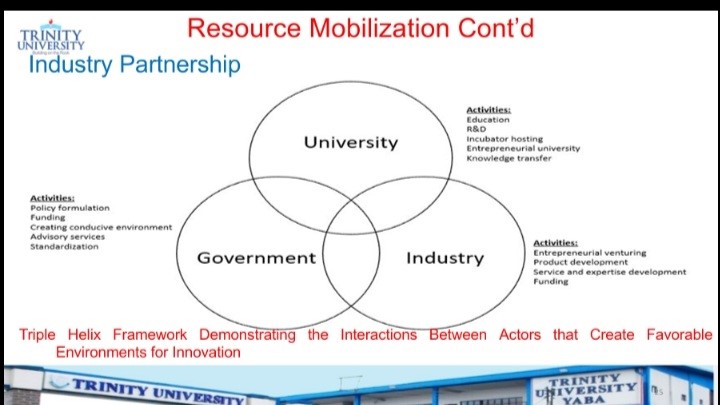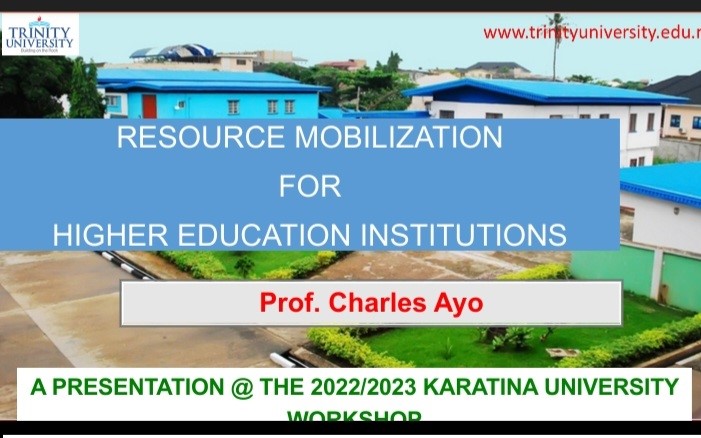In pursuit of realizing Financial Sustainability as one of its Key Result Areas as embedded in the 2021 – 2025 Strategic Plan, the University, through the Directorate of Resource Mobilization and International Programmes, held a virtual Resource Mobilization training for academic staff on Friday, 28th October 2022. The training was facilitated by Prof. Charles Korede Ayo, the Vice Chancellor, Trinity University, Nigeria. Prof. Ayo is a celebrated scholar who was ranked in 2018 by Scopus (Scival) as the No. 1 researcher in the world in the area of Governance, Electronic Governance and Democratic Governance. In 2015, he was awarded as the African Vice Chancellor of the Year in the Private Universities category. In 2016, the International Business Star Quality hailed him as the Most Outstanding Professional in Africa.
Dwindling Universities Funding
In a speech read by the Deputy Vice Chancellor (Academic, Research and Students Affairs), Prof. Peninah Aloo-Obudho, the Vice-Chancellor, Prof. Mucai Muchiri, noted that the Resource Mobilization training was very timely in view of the dwindling financial allocation to universities.
‘Resource mobilization is critical to organizations to ensure the continuation of service provision and sustainability. Successful resource mobilization requires rigorous work and time. I believe that the facilitator will have an opportunity to share with you what it takes to successfully mobilize resources’ he said.
Prof. Muchiri stated that utilizing institutional niche areas to drive resource mobilization is another conversation the University should be having. The Vice Chancellor opened up Karatina University to collaborations especially in grant writing and exchange programme for faculty and students.
Prof. Peninah Aloo-Obudho, in her capacity as the Division head, said that Karatina University is cognizant of the reducing finance allocations from the Government. She called upon members of the academia to strengthen their resource mobilization skills as a result of the training.
Deputy Vice Chancellor (Planning, Finance and Administration), Prof. Linus Gitonga, stated that the training was important since it was an opportunity to learn from those who have already done it successfully.
Strategies for Resource Mobilization
Prof. Charles Ayo took the academic staff through a presentation citing that Resource Mobilization refers to all activities undertaken by organizations, including Higher Education institutions (HEIs), to secure new and additional financial, human and material resources to advance its mission and for organisational sustainability. This also includes all activities for additional revenue (human, intellectual, financial), additional infrastructure (physical), additional grants and Income Generating Services.
‘The environment in which resources are mobilized is increasingly more competitive because there are several tasks and projects competing for the available scarce resources. There is also a global economic meltdown. These are the key questions confronting organizations when they consider how to maintain their work and strengthen organizational sustainability, said Prof. Ayo while challenging the trainees to think of ways organizations can raise the income needed to carry out their mission, the resources required and how that can be sustained.

According to the expert, the goal of Resource Mobilization is for organizational self-sufficiency, financial self-sufficiency and organizational sustainability. Of note, Prof. Ayo dwelt on properly managing the Alumni because they have great potential in contributing to the development of the University. He said that establishing an Alumni Endowment could be done in terms of structures, financial donations, partnerships or creation of start-ups.
‘Many start-ups such as Google, Siri, Yahoo, Facebook, Microsoft, Snapchat, WordPress, and Coursera among others started in universities’ he stated.
Prof. Ayo outlined the ideal structure of the Directorate of Research, Innovation and Extension which should include Research Parks, Research Clusters, a Commercialization Unit, Publications and Conferences Support and an Intellectual Property and Technology Transfer Unit. The whole essence of Research Cluster formation, according to the expert, is to promote academic mentorship in areas of research, publications, grants and administration. Research Clusters are also important since, he says, the era of individualistic approach to research is gone. Multi-disciplinary/Inter-disciplinary and Inter-institutional approach is the best as it fosters quality, speed and ranking of the University.

He further demonstrated the interactions between the Government, Industry and the University (Triple Helix Framework) and how these actors can create favorable environments for innovation. Resources can also be mobilized through student support services by establishing cafeterias, bakeries, transportation services, financial services (Banks), and manufacturing and construction industries through Public Private Partnerships.
Recommendations
Among the raft of recommendations made to enhance resource mobilization is the diversification of sources of funding for Higher Education Institutions (HEIs) to include proprietors, school fees, endowments, research grants and patents, research parks, innovation, business and investments, Alumni, and Public and Private Partnerships among others.
The University can also leverage on the concept of Triple Helix and a well-structured Research Centre to evolve into an entrepreneurial University. Implementation of Open Distance Learning (ODL) and Massive Online Open Online Courses (MOOCs) would also go a long way for resource mobilization generation.
Establishing multi-disciplinary and inter-disciplinary research clusters among the existing Schools can, eventually, evolve into national and international Centres of Excellence. These Research Clusters should make the Sustainable Development Goals (SDGs) and Agenda 2063 part of, if not, their main focus of research. These will impact the immediate environment through the concept of GLOCAL, impact ranking for national and international recognition and improve the quality and quantity of research publications.
Furthermore, Research Policy should be formulated and be made a requirement for academic promotion with emphasis on acceptable publication outlets such as Scopus, Web of Science and Google Scholar. All these, if properly harnessed, will enhance research outputs, research patents, national and global rankings as well as global visibility.



